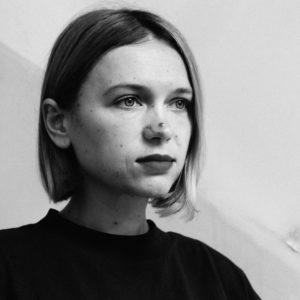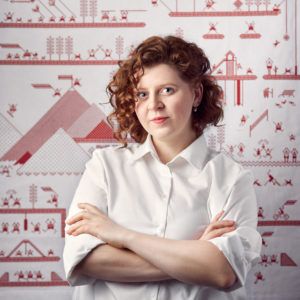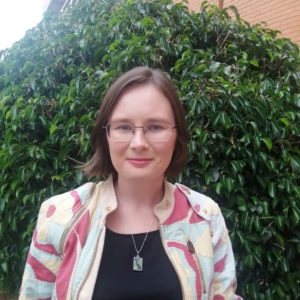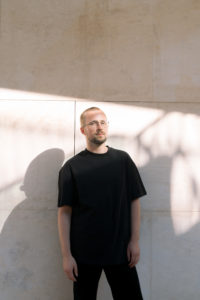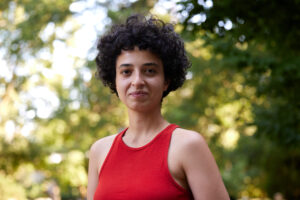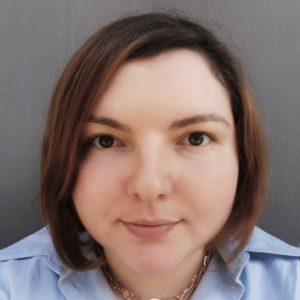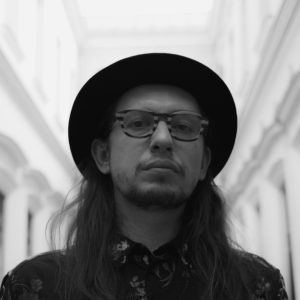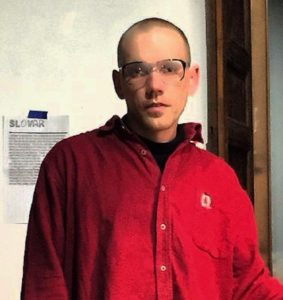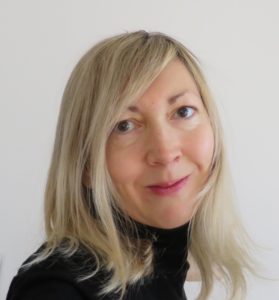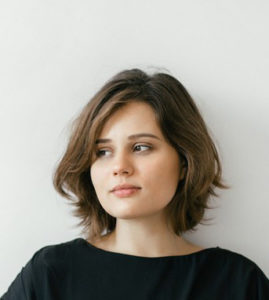Asia Bazdyrieva is an art historian and practitioner whose interests span across visual culture, (feminist) epistemology, and environmental humanities at large, with particular attention to the project of Soviet modernity with its ideological and material implications in spaces, bodies, and lands. She holds master’s degrees in art history from the City University of New York and analytical chemistry from the Kyiv National University.
Asia was a Fulbright scholar in 2015–17, Edmund S. Muskie fellow in 2017, and Digital Earth fellow in 2018-19. She also co-authored Geocinema (with designer and filmmaker Solveig Qu Suess)—a collaborative project that explores the possibilities of a “planetary” notion of cinema. Geocinema has been nominated for the Schering Stiftung Award for Artistic Research (2020), and the Golden Key prize at the Kassel film festival (2021).

